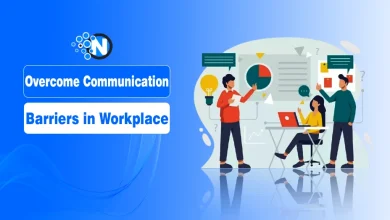Why a Virtual Data Room Is a Top Choice for M&A and Due Diligence

When it comes to mergers and acquisitions, speed and security are everything. Imagine trying to share thousands of sensitive documents with multiple stakeholders, lawyers, investors, and auditors without risking a data breach or drowning in email threads. That’s where virtual data rooms (VDRs) shine.
Manually managing that volume of documents creates a significant administrative burden. A virtual data room gives deal teams a secure place to manage documents. Moving to a dedicated platform like an Ideals virtual data room is a strategic upgrade for a company that is getting ready for a deal.
This article explores the role of data room software in deal-making. Read on for a checklist on how to choose a reliable solution that fits your needs and budget.
What a Virtual Data Room Actually Does
Investopedia identifies a virtual data room as a secure online space where companies store and share sensitive information with selected parties. This software is built specifically for high-stakes transactions.
Think of it as a secure digital building. You only get in if you have an invitation. Once inside, the system logs every move you make. In many data rooms, we can even track which potential buyer spent twenty minutes on the financials and who skipped that section entirely. This visibility is invaluable when you’re trying to gauge serious interest across multiple parties.

Why VDRs Work so Well in M&A and Due Diligence
The biggest reason is control. Sensitive information can’t just live in email threads or shared drives. In any deal, controlling who sees the documents matters as much as the documents themselves. A virtual data room makes that part straightforward. The admin decides who gets access and changes it when roles shift. If someone leaves the project, they’re cut off right away. Each file view or download is logged automatically, so there’s always a clear record of activity — no guessing who saw what.
A second reason is speed. Deals fall apart when communication slows down. Instead of waiting for couriered documents or unzipping giant email attachments, teams can log in and find exactly what they need.
A VDR centralizes the entire process. Legal teams upload NDAs, accountants check the numbers, and investors leave questions directly under specific files. This setup keeps communication focused and searchable.
Another subtle benefit is consistency. When multiple bidders are involved, the seller’s team can make sure everyone reviews the same version of each document. No more confusion about whether a newer draft was uploaded somewhere else.
The Impact of Using a VDR
For many companies, the difference between using a modern data room and relying on ad-hoc file sharing is night and day. Let’s say there is an M&A team with hundreds of contracts, supplier agreements, and regulatory documents to review.
In a regular cloud drive, they’d spend hours just locating files and confirming versions. With a structured VDR, like Ideals virtual data room, everything sits in one logical hierarchy. Everyone sees the context, and nothing gets buried in an email chain.
Reckitt Benckiser’s 2017 acquisition of Mead Johnson shows how companies use VDRs in practice.
Reckitt Benckiser accessed the data room to review confidential information. Throughout the process, Mead Johnson’s team and their advisors actively used the platform to meet Reckitt’s requests. They uploaded new documents to the data room and held calls and meetings to discuss the materials. This system centralized the entire document exchange, moving the complex process forward.
With a data room, everyone sees the context and nothing gets buried in an email chain. No matter how complex the deal is or how many professionals are involved, the VDR keeps all the documents secure and organized.
What to Look for when Choosing a Data Room
Not every VDR suits every company. Some, like Ideals VDR, are built for large corporations, while others work better for startups that are preparing for their first acquisition.
To choose the right option, investigate what the market offers. Don’t just trust the sales demo. Go read what real users are saying on G2 and Capterra.
Some of the most highly-rated VDR you’ll see there are Ideals data room, Firmex, and Datasite. So, you might want to explore these solutions in more detail.
Once you’ve picked 2-3 favorites, evaluate the features. You can use this handy checklist. Here, all the essential features are broken down into the key categories:
Security
- Granular access controls for viewing, downloading, printing
- Automatic watermarking on documents
- Two-factor authentication required
- Automatic document expiration
- Ability to revoke downloaded documents
- Complete activity logs
Ease of use
- Drag-and-drop file uploading
- Bulk user and permission management
- Mobile-friendly interface
- Search inside documents
- Built-in Q&A section
- Multiple language options
Cost & Help
- Clear pricing with no hidden fees
- Flexible plans for different project sizes
- 24/7 customer support
- Training materials available
- Easy data export when the project ends
Management
- Simple user invitation system
- Activity dashboard
- Custom login agreements
- Exportable activity reports
Before you sign a contract, get a feel for the platform yourself. If a provider offers a free trial period, use it. Try to upload a few files and set permissions for different users. If you can’t find basic features quickly, your team and clients will get frustrated and just stop using it. That would create more problems than it solves and means you should keep looking.
And one more thing, make sure you test their support. See how long it takes to get a real answer to a simple question.
Conclusion: VDRs Making M&A Stress-free
No technology can make M&A stress-free. Data rooms reduce chaos, but they still rely on human judgment.
Still, when used properly, data rooms turn due diligence into an organized and traceable process. Everyone involved – lawyers, auditors, investors, founders – can work from the same source of truth.
That’s why virtual data rooms, such as Ideals solutions, have become a standard part of business transactions. They don’t promise magic. They just solve a very real problem that every deal team faces: how to share sensitive information without losing control of it.




